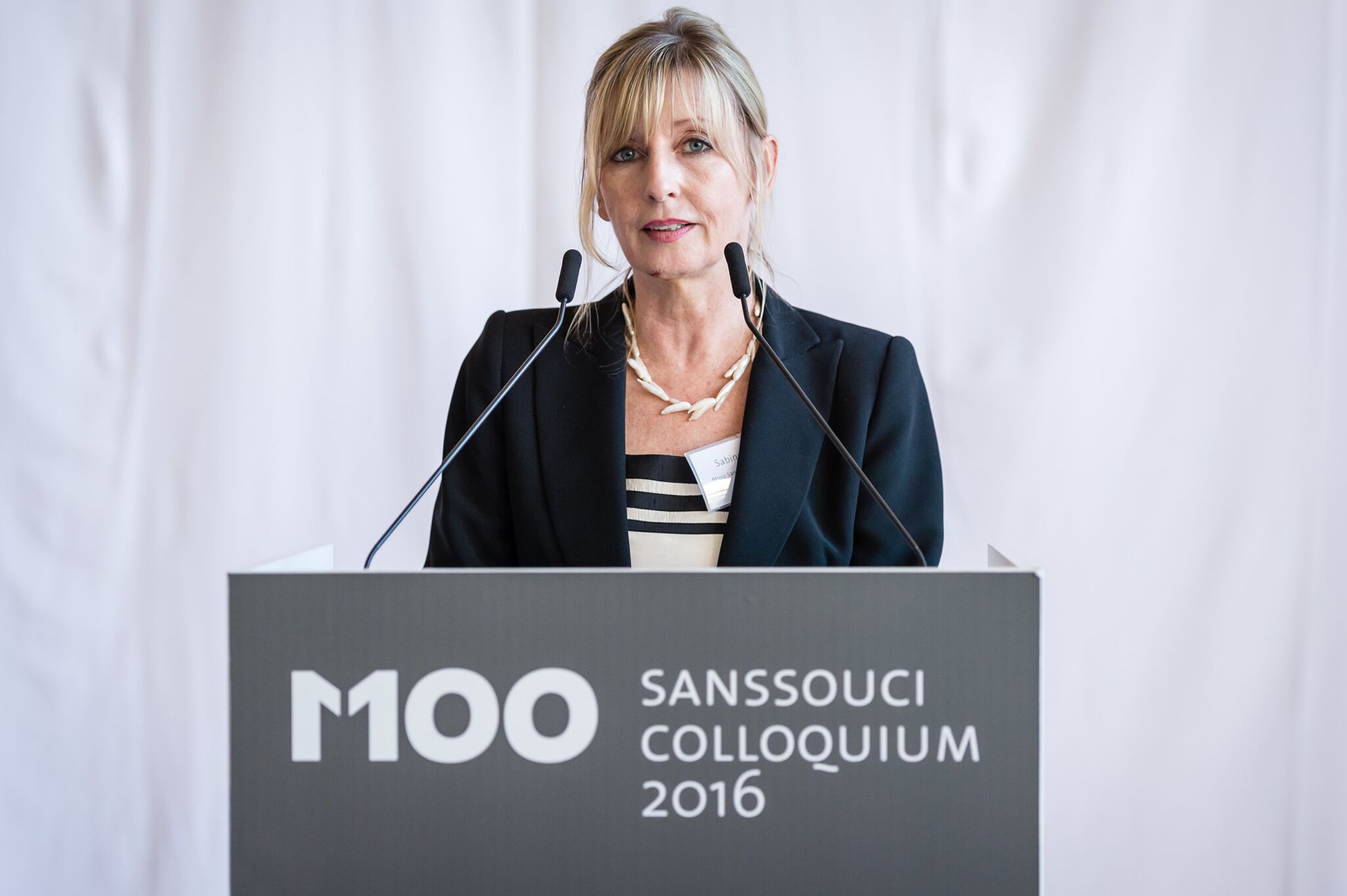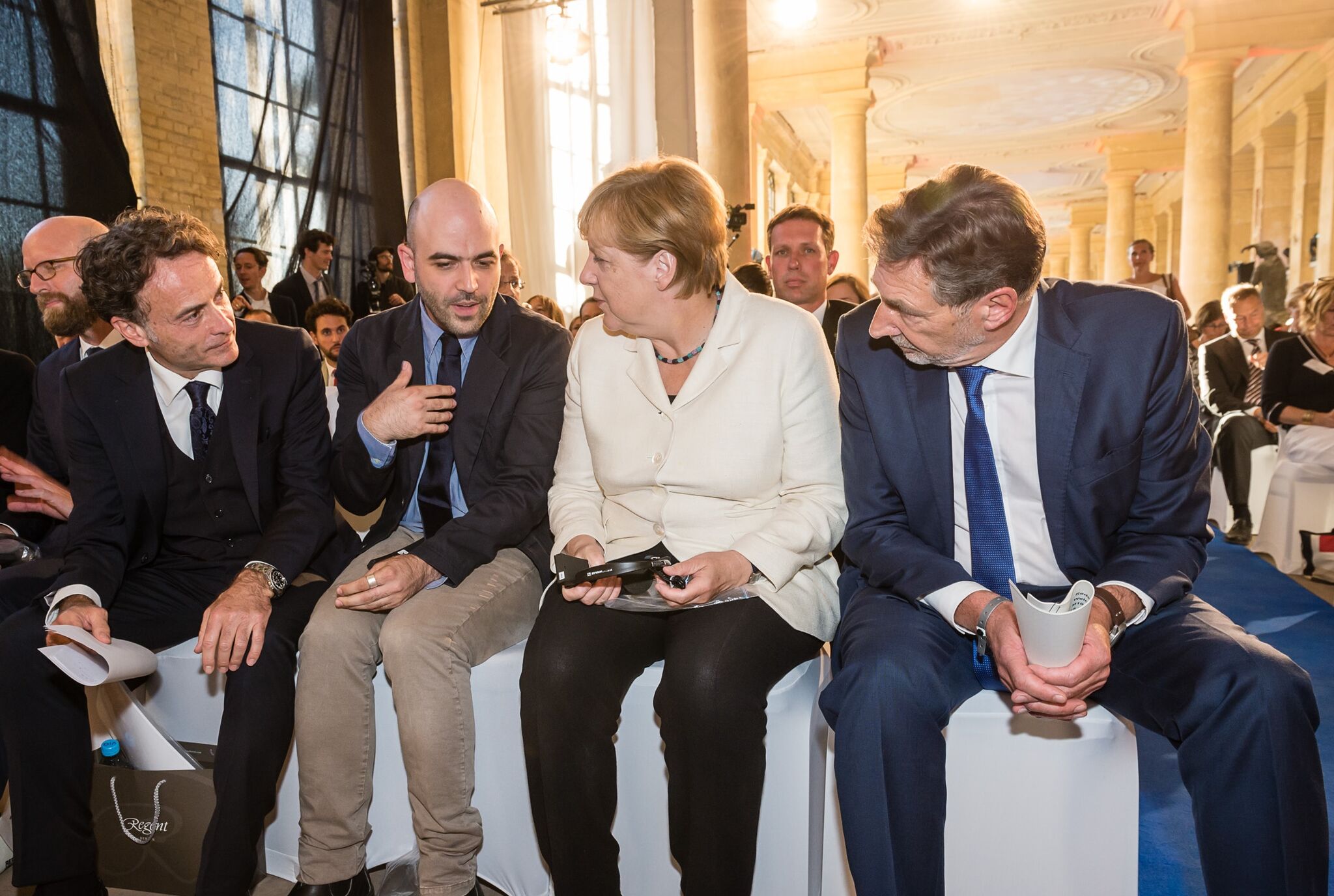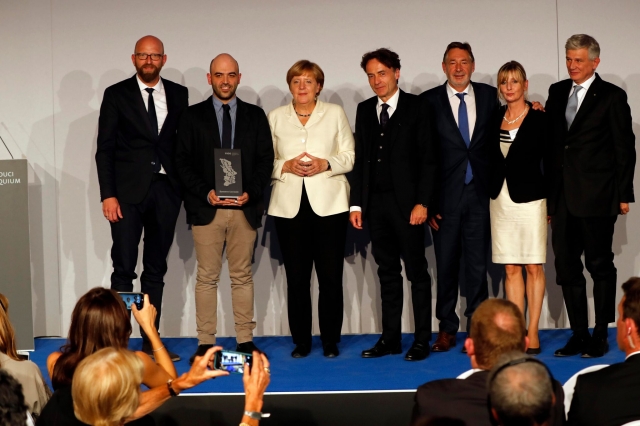War or Peace – Europe’s Media Elite Talks Geopolitics at M100 Sanssouci Colloquium
The M100 Sanssouci Colloquium, while perhaps not as well-known as it should be in the Caucasus region, is a massive annual media event that takes place in Potsdam, Germany, in the famed Sanssouci Palace that used to be the summer residence of Prussian royalty. It’s a place where all top media outlets from all over Europe gather each year to discuss the developments that are shaping today’s Europe and the role of media in it. I had the privilege to be invited there this year again after also attending the event in 2015.
When you first arrive at the M100 Sanssouci Colloquium, it can be emphatic: the very crème of Europe’s press is there: The really old names, big guns, top people, you name it. As classy and prestigious as it gets without erring to the side of elitism (hey, not every media event gets attended by the Bundeskanzlerin herself – Frau Merkel was there to attend an award ceremony, more on that later). And when you are just a simple (not exactly humble) editor hailing from Georgia, with its proud but still relatively little-known media community, this kind of euphoria is easily explainable. Even if it’s your second coming here, there is much to learn – it’s not every day that you listen to top intellectuals of European media muse about such intrinsic things as Russian propaganda or investigative journalism.

War or Peace – The Return of Geopolitics was this year’s chosen theme and the speakers didn’t disappoint: from the effects of Brexit to the war in Ukraine and emergence of right wing parties, the discussion was top notch, as were the keynote speeches and expert contributions. Being Georgian, the topic of hybrid war waged by Russia and turmoil in Turkey was especially interesting. Regarding the first, it was somewhat symbolic to see the Western media gurus preaching about good journalism, while their Eastern European colleagues, some of whom have to deal with Russian media propaganda on a daily basis, rolled their eyes and brought up delightful analogies. One of those has stuck with me: How do you compare a Hollywood action flick to a documentary, or the “making of”? Which one is more watchable and which one’s more real? Then how you combat the first with the second?

On Turkey, it was an eye-opening experience to listen to Can Dundar, a former editor-in-chief of one of Turkey’s oldest pro-Western and secularist media outlets, the Cumhuriyet newspaper, who curtly summed the post coup situation in Turkey with a brief remark: “A successful coup would have brought us a dictatorship. Now we have a police state.” Hard to argue with that.
Another benefit that the Colloquium confers is that of sharing experience and know-how. Each year, a week-long workshop precedes the event, where young journalists, mostly from Eastern Europe, get to train and hone their skills in a selected topic –this year it was investigative journalism techniques and challenges, what with all the buzz about the Panama papers. With our aspiring journalists under such thoughtful tutelage, the future prospects of Georgian media suddenly doesn’t look too bleak – both a crop of young (relatively, as the author of this piece is in his thirties himself) journalists that I had the privilege to meet in Potsdam were impressively qualified, talented and full of ideas.
Yet another noteworthy aspect of the Colloquium is that it gives out annual awards for outstanding contribution to media. And while last year’s winners The Charlie Hebdo editor’s office haven’t filled me personally with the greatest of inspirations (a matter of personal taste and morality, I guess), this year it was a different story - the brave and outstanding author Roberto Saviano, with his best-selling investigative book “Gomorrah” (later made into an equally brilliant movie and recently adapted to a TV series format), detailing the behind-closed-doors deals of Italian mafia, was every inch an aspiration and an example for any journalist. Saviano, who now has to endure life under the constant supervision of bodyguards, as the crime bosses show no inclination to cease their hunt for him, delivered a poignant and staggeringly emotional acceptance speech disputing the ancient Roman Emperor Vespasian’s famous notion that money doesn’t smell. To Saviano, money smells, and he insists it should smell for every decent person, too. Amen to that.
Like in every well-oiled mechanism, the M100 Colloquium also has that one special part that makes all others click into motion. This piece wouldn’t be complete without mentioning the person who’s been putting in a tremendous shift to make things happen, and doing that in a subtle and gentle manner. Frau Sabine Sasse, who I’m proud to call my friend, has been responsible for the organizational matters of M100 for years now, and I think I will speak for every young journalist and experienced pro when I say a big Danke Schon to her for the splendid work she’s been doing. May she do that and more for years and years to come, as we witness media achieving the heights it should aspire to – a decent media in the hands and for decent people, as Mr. Saviano would probably say.
Vazha Tavberidze












